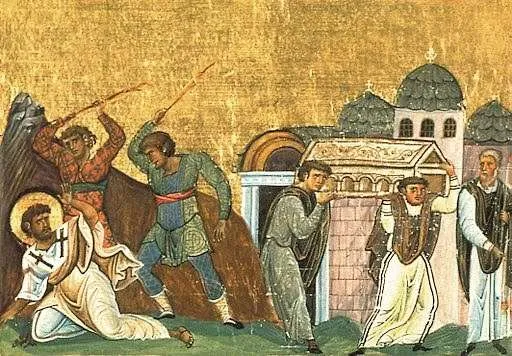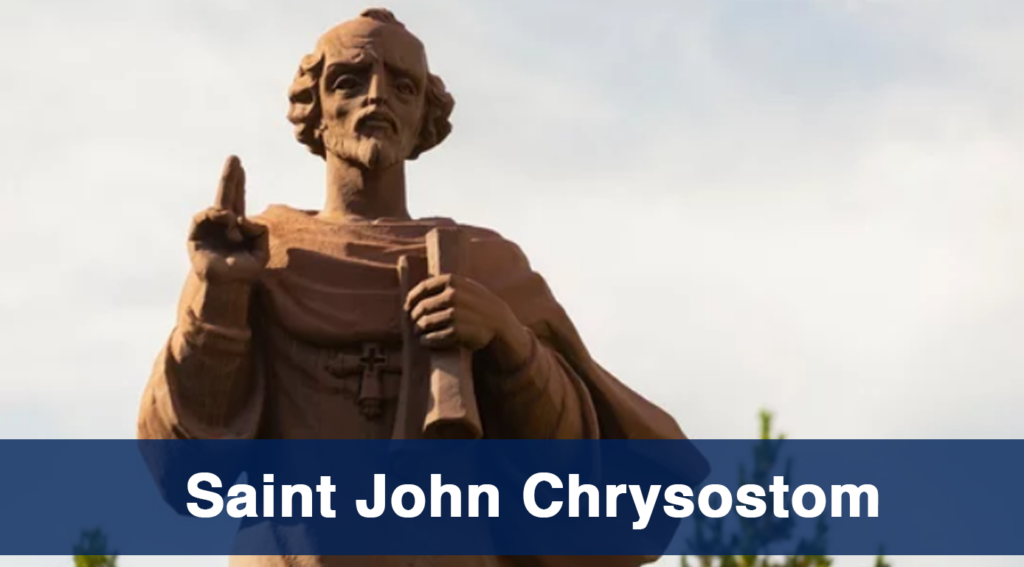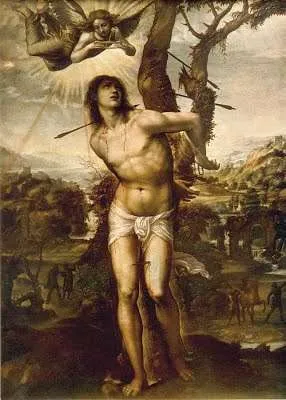1567–1622; Patron Saint of authors, journalists, writers, deaf persons, educators; Canonized on April 8, 1665 by Pope Alexander VII; Declared a Doctor of the Church in 1877 by Pope Pius IX
Saint Francis de Sales was born fifty years after an Augustinian priest named Father Martin Luther ignited the Protestant Reformation, and just twenty-five years after John Calvin’s anti-Catholic teachings spread to Geneva, Switzerland. Francis was born into a noble family in the Duchy of Savoy, modern-day France, not far from Geneva. Because of his noble family heritage and his father’s influence, Francis was given an excellent education, eventually earning doctorates in civil law and theology. His father had selected a noblewoman for Francis to marry. He also had planned for his gifted son to enter into politics, but Francis was led in a different direction.
In 1586, at the age of nineteen, Francis attended a Calvinist lecture on predestination, which led him to believe he was destined for hell. This greatly affected him, and he struggled with the idea for months. Eventually, through the intercession of our Blessed Mother and the Memorare prayer, Francis was freed from this error and turned his focus to the pure love of God. After experiencing firsthand the effects that erroneous theology can have on a person, Francis devoted himself to a life of celibacy and began pursuing his God-given desire to be a priest. Though reluctant at first, his father eventually agreed to his son’s ordination and then helped to have him appointed to an important position in the Diocese of Geneva.
Because Geneva was under the control of the Calvinists, Father de Sales preached and resided in a cathedral some twenty miles south of Geneva. As a newly ordained priest, he began to make a name for himself. His sermons were preached with gentlemanlike qualities, showing great respect for those who disagreed with him. He never shied away from the theological truths under attack by the errors of the Reformation. He avoided controversy and criticism, focusing instead on virtues, prayer, holiness, and overcoming sin. Despite his kind nature and charitable approach, he was harshly treated by the many local anti-Catholics, some of whom even threatened his life.
In 1602, at the age of thirty-five, Father de Sales was ordained Bishop of Geneva, and his evangelical fervor moved ahead at full throttle. His intention was to win back the citizens of Geneva to the Catholic Church. So many had left, following the teachings of Calvin. For the first couple of years, Bishop de Sales was ineffective in winning over many converts. But little by little, one soul at a time, he began to have success. His success especially came in the form of placing written explanations of the faith under people’s doors, inviting them back to the Catholic Church. His preaching was clear, respectful, truthful, and charitable. His motto was “He who preaches with love, preaches effectively.”
Bishop de Sales was a very practical man, especially when it came to his theology. He believed that holiness was not reserved for those in the monastery or convent. He believed that everyone, in every state in life, within every occupation, was called to a life of sanctity. This conviction is most clearly seen in his most famous published book, Introduction to the Devout Life. This book was a compilation of letters he had sent to his spiritual directees over the years, which began by giving clear and practical advice on the importance of being purged of sin and of attachment to sinful habits. It then taught how to grow in the virtues, especially humility; navigate temptations; and overcome anxiety and sadness. It also provided exercises on how to renew one’s life of devotion, which was nothing other than loving and pleasing God with one’s life. This book, along with other writings, won many to the faith. In 1610, he assisted one of his spiritual directees, the future Saint Jane de Chantal, to establish the women’s Order of the Visitation of Holy Mary. His inspiring letters to her became a source of spiritual formation for the women of her newly founded order.
After turning down advancements within the Church, Bishop de Sales chose instead to devote his time and energy to the salvation of souls within his local diocese. It is said that Bishop de Sales won back as many as 40,000 Catholics who had become Calvinists. After nine years as a priest and twenty years as a bishop, Bishop de Sales suffered a stroke and died soon after. It is believed that one of the last things he wrote were the words “Humility, humility, humility,” his dying exhortation to his flock.
As we honor this holy bishop, try to imagine what it would have been like had he been your shepherd. He would have taken your call to holiness seriously. He would have exhorted you to overcome sin by fully confessing your sins in the Sacrament, and to then grow in virtue, especially humility. He would have helped you to learn and believe every truth revealed by God through His Catholic Church, and to seek every practical way imaginable by daily prayer and meditation to become a saint. He would have regularly reminded you that holiness is not reserved for the monk alone. You, within the context of your state in life, are also called. Respond as one of his flock and resolutely determine to follow the path God has in store for you, seeking to love Him and glorify Him with your life.
Source: https://mycatholic.life/saints/saints-of-the-liturgical-year/january-24-saint-francis-de-sales-bishop-and-doctor/








